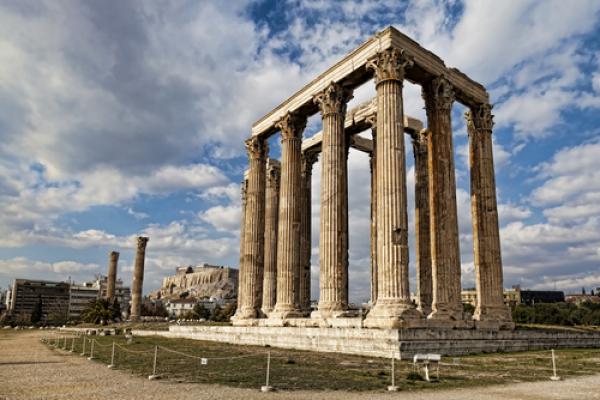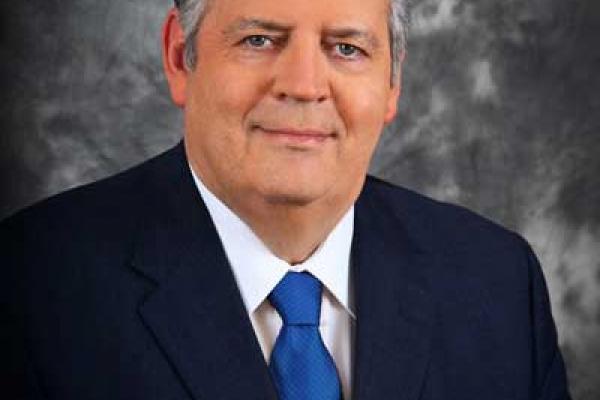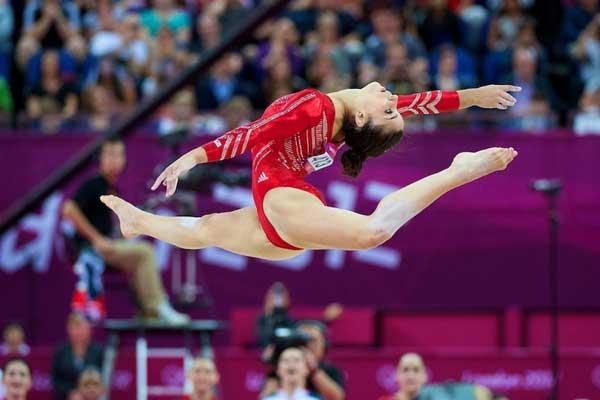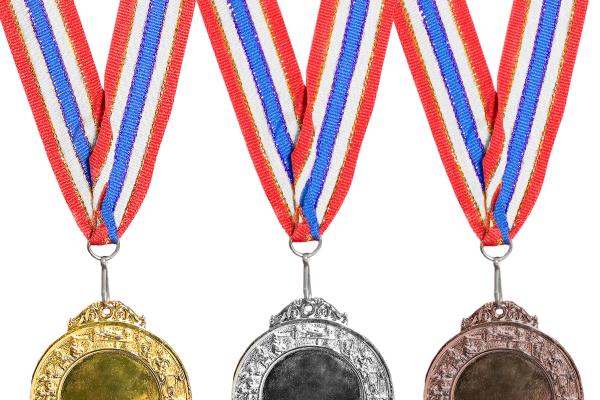“And what greater might do we possess as human beings than our capacity to question and to learn?” - Ann Druyan
Gracious God of mercy and justice, move those of us with more abilities to share their gifts with those that have less, so together we can overcome immediate difficulties and long-term structural injustices. Amen. Adapted from "Meditations and Devotions on the Millenium Development Goals"
Editor's Note: The following remarks were given on Capitol Hill on Aug. 1 as part of a call from faith leaders across the religious spectrum urging Congress to extend the Earned Income Tax Credit and Child Tax Credit for low- and moderate-income Americans.
A budget is a moral document. That phrase was coined by the faith community and has become a refrain in the ongoing debates over deficits and budgets. But in this week’s House vote on extending the Bush era tax cuts, we see one more example of the priorities and principles of the broader GOP budget and how they apply to the rich and to the poor. Because of this, we must conclude that the Republican budget is an immoral document—in the way it treats the poor. I certainly don’t believe that all our Republican lawmakers came to Washington to hurt poor people, but it’s time for some of them to challenge the dominant forces in their party and face the consequences of such indefensible choices.
We have a genuine hope for a long term bi-partisan solution and, in particular, a moral non-partisan commitment to protect the poor and vulnerable from being expendable in these fiscal debates. We should also say that Democratic budgets have not been models of fiscal responsibility and social justice, either. But what the House budget is calling for is morally objectionable on religious and biblical grounds—and people of faith from all political stripes should say so. In particular, to roll back tax credits for the poor to help fund tax breaks for the rich is morally reprehensible, and the faith community has to speak out.
When the Summer Olympics opened in London, there was a version of a religious ritual in the Olympic oath, procession of athletes and lighting of the flame. This was no accident because the modern Olympics have religious roots, though they appear to have largely secular fruits.
I'm reminded of this fact because it was in London in 1908 that Anglican Bishop Ethelbert Talbot first said, "The most important thing in these Olympics is not so much winning as taking part" — a phrase that became part of the Olympic creed. He was following in the footsteps of the Rev. Henri Didon, a Catholic priest who gets credit for the official Olympic motto "citius, altius, fortius" (faster, higher, stronger).
The founder of the modern Olympics, Baron Pierre de Coubertin, was educated by Jesuits. "The first essential characteristic of the Olympics, both ancient as well as modern, is to be a religion … above and outside the churches," he said. He was influenced by proponents of "muscular Christianity," who turned away from traditional Christian contempt for the body and used sports as a method of strengthening faith and morality.
Muscular Christianity became popular in Victorian England and spread to the U.S., where it shaped the programs of the YMCA and Boy Scouts of America, as well as church sports leagues. Although it declined in mainline Protestantism in the 20th century, it remained strong in evangelical organizations, such as the Fellowship of Christian Athletes and Promise Keepers. Today, muscular Christianity is alive and well in professional athletes such as Tim Tebow and Jeremy Lin.
Richard Land, the man who became the public face of the Southern Baptist Convention on ethical and political issues for nearly 25 years, has announced plans to retire in 2013 after a rough-and-tumble spring.
The decision comes months after Land, president of the SBC’s Ethics & Religious Liberty Commission, made controversial comments about the Trayvon Martin case that resulted in a reprimand and the loss of his radio talk show for the racial tension they caused.
Land, 65, said in a Tuesday letter announcing his retirement that he has no intention of ending his role as a culture warrior.
“I believe the ‘culture war’ is a titanic spiritual struggle for our nation’s soul and as a minister of Christ’s Gospel, I have no right to retire from that struggle,” Land wrote in a two-page letter to the acting chairman of his commission.
Americans cheered when Aly Raisman of Needham, Mass., won a gold medal on Tuesday in the women’s all-around gymnastics competition, but at least some American Jews likely cheered a little louder.
“For people who are part of a minority, to see one of your own have this international recognition gives you enormous satisfaction and pride,” said Rabbi Keith Stern of Temple Beth Avodah in Newton Centre, Mass., where Raisman has worshipped since childhood. “It lets you say, ‘Look at what we’ve managed to do.’”
Members of minority faiths in the U.S. — Jews, Muslims, Hindus and Sikhs — are rooting for U.S. Olympians and also saving a few extra cheers for their co-religionists, both Americans and athletes from other teams. Before they go to bed or when they wake up, they scan lists of medal winners and competition results, looking for names that might sound Jewish, Muslim, Hindu or Sikh.
But why?
In a sense, religion isn't supposed to matter in who a fan roots for, said Harold U. Ribalow, author of three books about Jewish athletes, trying to answer that question. But, he added, the evidence was overwhelming that people like to see those from their own groups do well, especially in the root-for-the-underdog world of sports.
Whether wrestling with one the of non-heterosexual identities or the exigencies of birth control, the hidden costs of pornography, or the viability of chastity, 21st-century Christians have been confronted with unforeseen challenges that have led us to rethink traditional teachings on sexuality.
In many cases, particularly in more progressive expressions of faith, our sexual ethics have adapted and shifted more quickly than our theology (as is often the case). For generations to come, however, a sound theological framework is needed to support a robust Christian sexuality capable of dealing with “the world we find ourselves in.” The hands and feet of our ethical impulses have progressed boldly into unexplored terrain, but unless we discover the body that will provide a balance and stability, such ethical stances will be bound to collapse.
What we need is “a new kind of sexuality,” a response to emerging realities that is both orthodox and open, free and faithful. Such a framework will ultimately be bound to the Great Tradition of the Church while resisting enslavement to interpretations and applications of this Tradition that are now seem incapable of addressing heretofore unexplored questions. It is such “a new kind of sexuality” that I offer here, a starting point as we begin to shape a foundation that will provide the solid ground from which our ethics might find roots. I believe that such a framework will consist of the following five characteristics.
I have to admire Melinda Gates' chutzpah.
In her recent TED talk and on her blog, Impatient Optimist, Gates insists that "contraception is not controversial" — when, in the last year, it has been explosively controversial, with many Christians (not just Catholic Christians) seeing the "contraceptive mandate" as a real threat to religious freedom.
Yesterday, the new Affordable Care Act laws took effect, meaning that most employers must now provide free birth control coverage in their health insurance policies. Whether it constitutes a threat to religious liberty and whether remains to be seen — faith-based groups with religious objections to the law have a "safe harbor" until Aug. 1, 2013. Whether HHS will create an extension of this harbor is as yet unknown.
Regular readers of my blog know where I stand on health insurance. As to the contraceptive mandate specifically, I'd prefer not to wade in those particular waters — David Gibson had a good piece if you're interested in the question of whether the mandate kills religious freedom. However, I do want to consider two small points about contraception that lean me toward the (self-identified Catholic!) Melinda Gates point of view:
1. Contraception doesn't take life;
2. Women want contraception.
Of course, there’s a part of all of us that loves a winner. There’s a reason why so many people wear the jerseys of their favorite teams or players (way more when that person or team is on top than not, by the way), why we revert to a sort of tribal level of passion — painting our faces, screaming rabidly — and why we practically make a religion out of our sports. At one level, it’s inspiring to see someone achieve what appears to be unattainable. The idea of doing what most Olympians do — or all professional athletes, for that matter — is hard to comprehend. But when we get to witness it, it serves to embolden our faith in humanity a little bit.
Yes, we screw up a lot, we fight each other, and we’re warming up the planet at an alarming rate. But once in a while, it’s transcendent to watch someone do something amazing, beautiful, a little bit closer to perfect.
Back in the 1970s, when I still was living near William F. Buckley in Switzerland close to my parent’s ministry, L’Abri Fellowship, from time to time the author would visit my mother and father for tea.
My late father (the theologian Francis Schaeffer) and Buckley had little in common apart from a shared love of art, the Swiss Alps, and a sense that the West was in a decline that only Christianity could reverse — even if they would not have agreed on what that word “Christianity” meant. WFB was a bon vivant Roman Catholic and Dad was a “biblical inerrancy” fundamentalist.
Dad would serve tea, but I could tell that, as the afternoons wore on, Buckley might have preferred an offer of something a bit “stiffer,” as the Brits call a real drink. Later, in the early '80s, Buckley and I were comparing notes about speaking (I’d just addressed the Southern Baptist convention before I fled the evangelical scene), and he mentioned that he agreed with Winston Churchill who said, "You can't make a speech on ice water."
Dad was a teetotaling Presbyterian. Notwithstanding, Buckley — perhaps to annoy my father — once said, rather pointedly, that he always demanded a couple of glasses of wine before taking to the podium.
When I learned of Gore Vidal’s passing Wednesday, I recalled Buckley talking to Dad and me about how Vidal and he used to go hammer-and-tongs arguing on TV — mostly on Buckley’s program Firing Line — only to go have a drink together after the show.






